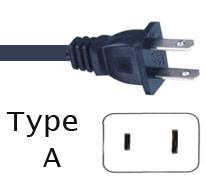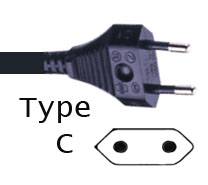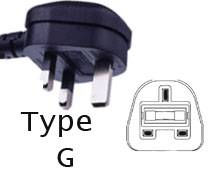Nestled in the heart of Southeast Asia, Cambodia is a land of ancient temples, lush landscapes, and vibrant culture. From the majestic temples of Angkor to the bustling streets of Phnom Penh, Cambodia offers travelers a rich tapestry of history, spirituality, and natural beauty to explore. Whether you’re marveling at the sunrise over Angkor Wat, cruising along the Tonle Sap Lake, or immersing yourself in the local markets, Cambodia promises an unforgettable adventure.
Ultimate Cambodia Travel Guide
Destinations
Best time to go
The best time to visit Cambodia is during the dry season, which typically runs from November to April. During this time, the weather is generally sunny and dry, making it ideal for exploring temples and outdoor activities. However, if you prefer fewer crowds and don’t mind occasional rain showers, the wet season from May to October offers lush green landscapes and lower hotel rates.
Average Temperature By Month
January: 25°C (77°F)
February: 26°C (79°F)
March: 28°C (82°F)
April: 29°C (84°F)
May: 29°C (84°F)
June: 28°C (82°F)
July: 27°C (81°F)
August: 27°C (81°F)
September: 27°C (81°F)
October: 27°C (81°F)
November: 26°C (79°F)
December: 25°C (77°F)
What To Expect
Time Zone:
Cambodia operates on Indochina Time (ICT), which is 7 hours ahead of Coordinated Universal Time (UTC+7).
Currency:
The official currency of Cambodia is the Cambodian Riel (KHR), although the United States Dollar (USD) is widely accepted and often preferred for larger transactions. It's advisable to carry a mix of both currencies, especially when traveling to more remote areas.
Language:
Khmer is the official language of Cambodia, spoken by the majority of the population. However, English is widely spoken in tourist areas, hotels, and restaurants, making it relatively easy to communicate with locals.
Airport:
The main international airport serving Cambodia is Phnom Penh International Airport (PNH), located near the capital city of Phnom Penh. Siem Reap International Airport (REP) is another major airport, conveniently located near the Angkor Archaeological Park.
How To Get Around
Tuk-Tuks: Tuk-tuks are a popular and convenient mode of transportation for short distances in cities like Phnom Penh and Siem Reap. Negotiate the fare before starting your journey.
Motorbike Taxi (Motodop): Motorbike taxis are commonly used for short trips within cities. Always wear a helmet and agree on the fare before getting on.
Rental Cars/Bikes: Renting a car or motorbike is an option for exploring Cambodia’s rural areas and remote destinations. However, be cautious when driving, as road conditions and traffic can be challenging.
Buses: Buses are the most common mode of long-distance travel in Cambodia, with routes connecting major cities and tourist destinations. Several reputable bus companies operate throughout the country, offering both budget and luxury options.
Boats: Boats are a scenic way to travel between certain destinations, such as Siem Reap and Battambang or Phnom Penh and Siem Reap. Ferry services also operate to some of Cambodia’s islands, such as Koh Rong and Koh Rong Samloem.
Average Temperature By Month:
January: 25°C (77°F)
February: 26°C (79°F)
March: 28°C (82°F)
April: 29°C (84°F)
May: 29°C (84°F)
June: 28°C (82°F)
July: 27°C (81°F)
August: 27°C (81°F)
September: 27°C (81°F)
October: 27°C (81°F)
November: 26°C (79°F)
December: 25°C (77°F)
Plugs:
The standard voltage in Cambodia is 230 volts AC, with a frequency of 50Hz. The most commonly used plug types are Type A (two flat parallel pins) and Type C (two round pins). It's advisable to bring a universal adapter if your devices have different plug types.
VPN:
Access to certain websites and online services may be restricted in Cambodia. Consider using a virtual private network (VPN) to securely access the internet and bypass any censorship restrictions.
Safety:
Cambodia is generally a safe destination for tourists, but it's essential to remain vigilant, especially in crowded areas and tourist hotspots. Petty theft and scams targeting tourists can occur, so keep your belongings secure and be cautious when dealing with strangers. Additionally, be respectful of local customs and traditions, particularly when visiting religious sites. It's also advisable to drink bottled or filtered water and take precautions against mosquito-borne illnesses. Overall, by staying informed and using common sense, you can enjoy a safe and rewarding travel experience in Cambodia.
Credit Cards and Banks
Credit Cards:
Credit card acceptance in Cambodia is growing, especially in major cities, tourist areas, hotels, restaurants, and larger shops. Visa and MasterCard are the most commonly accepted cards, followed by American Express and UnionPay. However, credit card usage may be less common in smaller towns and rural areas.
ATMs:
ATMs are widely available in major cities and tourist areas throughout Cambodia, allowing you to withdraw US dollars or Cambodian Riel (KHR). Phnom Penh, Siem Reap (near Angkor Wat), and Sihanoukville have a good number of ATMs. However, it’s advisable to carry enough cash when traveling to more remote areas, as ATM availability may be limited.
Currency Exchange:
The official currency of Cambodia is the Cambodian Riel (KHR), but US dollars are widely accepted and often preferred, especially for larger transactions and in tourist areas. It’s recommended to have a mix of US dollars and Cambodian Riels for transactions. You can exchange major foreign currencies at banks, currency exchange booths, and some hotels.
Banks:
Major banks in Cambodia include:
- Acleda Bank: One of the largest banks in Cambodia, Acleda Bank offers a wide range of banking services including savings accounts, loans, and foreign exchange.
- Canadia Bank: Another prominent bank in Cambodia, Canadia Bank provides various banking products and services for individuals and businesses.
Traveler’s Checks:
Traveler’s checks are not widely accepted in Cambodia, and their usage is limited. It’s recommended to carry cash or use credit/debit cards for transactions. However, some banks may still offer services for cashing traveler’s checks, albeit with a fee.
Tips for Banking in Cambodia:
- Notify your bank before traveling to Cambodia to inform them of your travel plans and avoid any issues with card usage abroad.
- Keep your PIN and card information secure, and be cautious when using ATMs, especially in secluded areas or at night.
- Carry small denominations of US dollars or Cambodian Riels for smaller purchases, as change may be limited.
- Familiarize yourself with the current exchange rate to ensure fair transactions when exchanging currency.
By understanding the banking system in Cambodia, you can ensure a smooth and hassle-free financial experience during your travels in the country.
Locations
Cambodia
TRAVEL FACTS
US State Dept Travel Advisory
The US Department of State currently recommends US citizens exercise normal precautions in Cambodia. Some areas have increased risks.
https://travel.state.gov/content/travel/en/traveladvisories/traveladvisories.html
Passport/Visa Requirements
For the latest passport and visa requirements for this country, please consult the U.S. State Department’s “Learn About Your Destination” search tool, available through the link below.
US Embassy/Consulate
[855] (23) 728-000; US Embassy in Phnom Penh, #1, Street 96, Sangkat Wat Phnom, Khan Daun Penh, Phnom Penh, Cambodia; https://kh.usembassy.gov/; ACSPhnomPenh@state.gov
LGBTQIA+ Travelers
Telephone Code
855
Local Emergency Phone
Ambulance: 119; Fire: 118; Police: 117
Vaccinations
The CDC and WHO recommend the following vaccinations for Cambodia: hepatitis A, hepatitis B, typhoid, yellow fever, Japanese encephalitis, rabies, meningitis, polio, measles, mumps and rubella (MMR), Tdap (tetanus, diphtheria and pertussis), chickenpox, shingles, pneumonia, influenza, and COVID-19.
Climate
Tropical; rainy, monsoon season (May to November); dry season (December to April); little seasonal temperature variation
Currency (Code)
Riels (KHR)
Electricity/Voltage/Plug Type(s)
230 V / 50 Hz / plug types(s): A, C, G



Major Languages
Khmer, Chinese, Vietnamese, other minority languages
Major Religions
Buddhist, Muslim, Christian, other
Time Difference
UTC+7 (12 hours ahead of Washington, DC, during Standard Time)
Potable Water
Opt for bottled water
International Driving Permit
Suggested
Road Driving Side
Right
Tourist Destinations
Angkor Wat; Bayon Temple; Banteay Srei; Kratie; Royal Palace Phnom Penh; Angkor Thom; Prasat Bayong; Preah Khan; Bokor Hill Station
Major Sports
Soccer, basketball
Cultural Practices
Cambodians traditionally greet each other with palms together, in a manner of prayer. They lift up their hands to the chest level and bow slightly. This is called Som Pas. In general, the higher the hands and lower the bow, the more respect is being shown.
Tipping Guidelines
A tip of 10% is appropriate at restaurants. If you are staying in a hotel, give the bellman around $1 (USD) per bag and housekeeping $1 (USD) per day. Taxi drivers do not expect tips.
Souvenirs
Krama scarves, silk items, carved statues, jewelry, silver boxes and bowls
Traditional Cuisine
A mok trei (fish amok) — a steamed fish curry with a mousse-like consistency
Please visit the following links to find further information about your desired destination.
World Health Organization (WHO) – To learn what vaccines and health precautions to take while visiting your destination.
US State Dept Travel Information – Overall information about foreign travel for US citizens.
To obtain an international driving permit (IDP). Only two organizations in the US issue IDPs:
American Automobile Association (AAA) and American Automobile Touring Alliance (AATA)
How to get help in an emergency?
Contact the nearest US embassy or consulate, or call one of these numbers:
from the US or Canada – 1-888-407-4747 or from Overseas – +1 202-501-4444
Central Intelligence Agency.
The World Factbook.
/the-world-factbook
(May 8, 2024)



